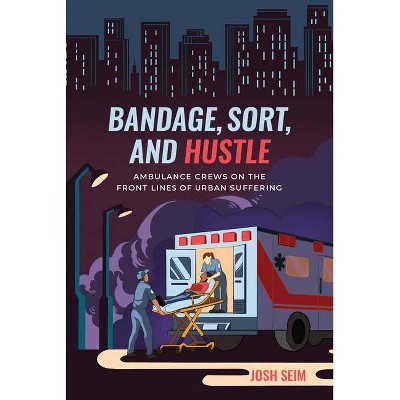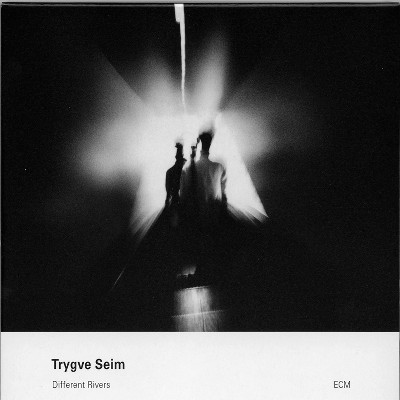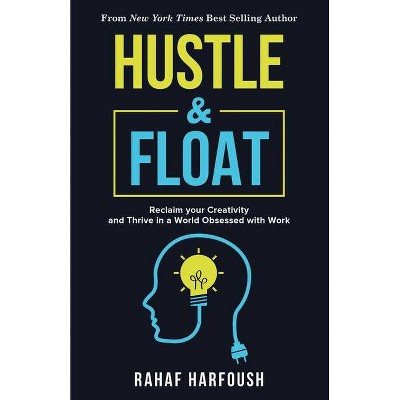Bandage, Sort, and Hustle - by Josh Seim (Paperback)

Similar Products
Products of same category from the store
AllProduct info
<p/><br></br><p><b> Book Synopsis </b></p></br></br>What is the role of the ambulance in the American city? The prevailing narrative provides a rather simple answer: saving and transporting the critically ill and injured. This is not an incorrect description, but it is incomplete. <p/> Drawing on field observations, medical records, and his own experience as a novice emergency medical technician, sociologist Josh Seim reimagines paramedicine as a frontline institution for governing urban suffering. <i>Bandage, Sort, and Hustle</i> argues that the ambulance is part of a fragmented regime that is focused more on neutralizing hardships (which are disproportionately carried by poor people and people of color) than on eradicating the root causes of agony. Whether by compressing lifeless chests on the streets or by transporting the publicly intoxicated into the hospital, ambulance crews tend to handle suffering bodies near the bottom of the polarized metropolis. <p/> Seim illustrates how this work puts crews in recurrent, and sometimes tense, contact with the emergency department nurses and police officers who share their clientele. These street-level relations, however, cannot be understood without considering the bureaucratic and capitalistic forces that control and coordinate ambulance labor from above. Beyond the ambulance, this book motivates a labor-centric model for understanding the frontline governance of down-and-out populations.<p/><br></br><p><b> From the Back Cover </b></p></br></br><p>"This hard-hitting ethnography takes readers into the working world of ambulance crews, painting a sharp portrait of those charged with picking up the bodies left to writhe in America's gutters. Weaving fresh theoretical insights with firsthand experience, Josh Seim offers an exciting new lens for understanding urban governance, labor, and inequality."--Forrest Stuart, author of <i>Down, Out, and Under Arrest: Policing and Everyday Life in Skid Row</i></p><p>"An excellent ethnography focusing on the literal blood, sweat, tears, and neoliberal dollars and cents of the for-profit medical mismanagement of urban poverty and social suffering in the contemporary US city."--Philippe Bourgois, coauthor of <i>Righteous Dopefiend </i>and author of <i>In Search of Respect: Selling Crack in El Barrio</i></p><p>"A clear and compelling analysis of the role of ambulance care in bandaging the wounds of an unequal society. Seim's observant-participation as an EMT and ethnographer affords him a clear vantage on the ways that first responders cope with and manage the extraordinary and everyday violence of urban suffering. Gritty and insightful."--Carolyn Sufrin, author of <i>Jailcare: Finding the Safety Net for Women behind Bars</i></p><p>"A timely investigation into the role that ambulances play in the lives of the most desperate among us. What starts as a study of the American city as seen through the windshield of an ambulance becomes a personal journey when Seim hops into the driver's seat himself. If you want to know what's really happening on our streets, then read this book."--Kevin Hazzard, author of <i>A Thousand Naked Strangers: A Paramedic's Wild Ride to the Edge and Back</i></p><p/><br></br><p><b> Review Quotes </b></p></br></br><br>"Dismantles the ambulance's adrenaline-fueled mythology. . . . Seim captures the essence of ambulance work: the plethora of mundane moments interspersed with brief bursts of excitement--excitement that is always tempered by the inevitable paperwork. Undistracted by trying to impress readers with flashy stories of traumatic life or death scenarios, Seim focuses on presenting the conflicts and struggles that ambulance crews face in the course of the day."-- "Cleveland Review of Books"<br><br>"One of the best monographs I have read. Dr. Seim's writing about his experience made the entire study more interesting to read because of his unique perspective as a sociologist on the front lines as an Emergency Medical Technician."-- "New Books Network"<br><br>"Seim's major contribution . . . is to provide insight into the attitudes of a group of workers who are responsible for managing and regulating the affairs of those who require help during a medical emergency." <br> -- "Relations Industrielles/Industrial Relations"<br><br>"A great contribution to urban theory as it yet again underlines the importance of studying organizations and their contexts in order to understand better how urban inequalities are reproduced." <br> -- "International Journal of Urban and Regional Research"<br><br>"By connecting the dots between classic and contemporary theory, the research of others, and his own research, Seim's work encapsulates the way that knowledge is produced and ideas are grounded in empirical observations. He starts by becoming familiar with the work of others to see what they have learned, and then he explores how his study can further inform their findings to broaden how we understand what he describes as 'frontline governance of urban suffering'." ? <br> -- "Everyday Sociology"<br><br><p>"Stunning analysis of the Emergency Medical System (EMS), its frontline workers, and patients . . . . A great source for highlighting how well-intentioned labor processes within seemingly benevolent occupations can further marginalize people and reproduce social inequalities."</p>-- "British Medical Journal, Medical Humanities"<br><p/><br></br><p><b> About the Author </b></p></br></br><b>Josh Seim</b> is Assistant Professor of Sociology at the University of Southern California.
Price History
Cheapest price in the interval: 29.95 on October 23, 2021
Most expensive price in the interval: 29.95 on November 8, 2021
Price Archive shows prices from various stores, lets you see history and find the cheapest. There is no actual sale on the website. For all support, inquiry and suggestion messagescommunication@pricearchive.us



















